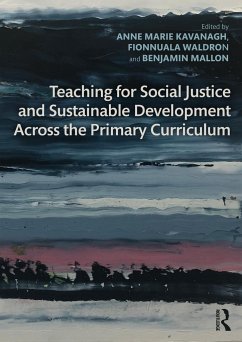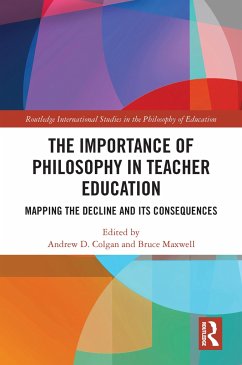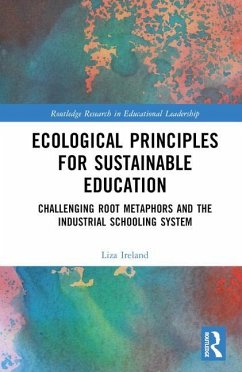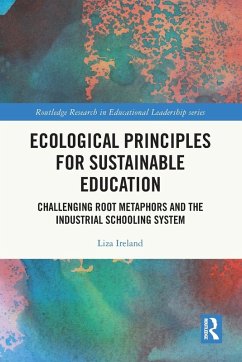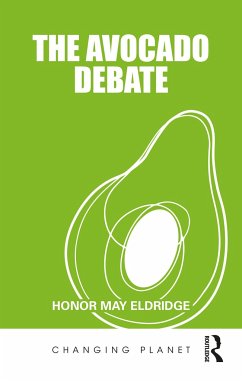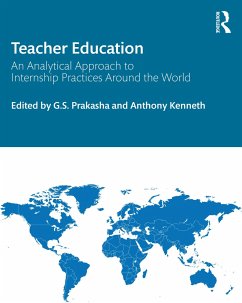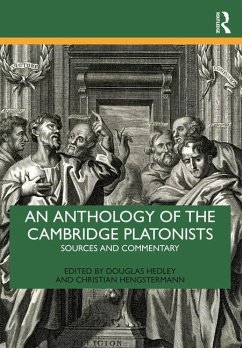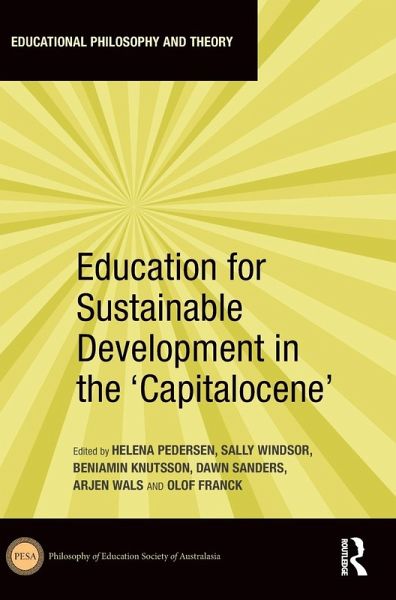
Gebundenes Buch
Education for Sustainable Development in the 'Capitalocene'
Versandkostenfrei!
Versandfertig in 1-2 Wochen

PAYBACK Punkte
85 °P sammeln!




The book seeks to explore ways in which education research, policy and practice ought to be re-thought and re-enacted under present bio-political predicaments. The chapters in this book were originally published in the journal Educational Philosophy and Theory.
Helena Pedersen is Associate Professor in Education at University of Gothenburg, Sweden. She is author of Schizoanalysis and Animal Science Education (2019) and Animals in Schools (2010). She is co-editor of the Critical Animal Studies book series and co-founder of University of Gothenburg's Network for Critical Animal Studies in the Anthropocene (GU-CAS). Sally Windsor is Associate Professor at the University of Gothenburg, Sweden, and teaches in the international Masters of Education for Sustainable Development and teacher education programmes. Her research interests include Indigenous knowledges and cultures for sustainability, school level sustainability education, geography teaching, arts-based pedagogies, professional conversations and practicum pedagogies. Beniamin Knutsson is Associate Professor in the Department of Pedagogical, Curricular and Professional Studies, University of Gothenburg, Sweden and a research associate of the Centre for Education Rights and Transformation, University of Johannesburg. His research is mainly concerned with issues pertaining to power and inequality in education for sustainable development. Dawn Sanders is Associate Professor in the Department of Pedagogical, Curricular and Professional Studies, University of Gothenburg, Sweden and an editor for the journal Plants, People, Planet. Her research considers questions concerning human interactions with the more-than-human world. She is a fellow of The Linnean Society of London. Arjen Wals is Professor of Transformative Learning for Socio-Ecological Sustainability at Wageningen University, Netherlands, where he also holds the UNESCO Chair of Social Learning and Sustainable Development. Furthermore, he is a Guest Professor at the Norwegian University for the Life Sciences (NMBU) and the Western Norway University of Applied Sciences. He holds an Honorary Doctorate from Gothenburg University in Sweden. Olof Franck is Professor in Subject Matter Education, specialising Social Studies subjects, and Associate Professor in Philosophy of religion at the Department of Pedagogical, Curricular and Professional Studies, University of Gothenburg, Sweden. His publications focus issues on ethics, social sustainability, religious education, and philosophy.
Produktdetails
- Educational Philosophy and Theory
- Verlag: Taylor & Francis Ltd
- Seitenzahl: 118
- Erscheinungstermin: 25. September 2023
- Englisch
- Abmessung: 250mm x 175mm x 11mm
- Gewicht: 352g
- ISBN-13: 9781032471709
- ISBN-10: 1032471700
- Artikelnr.: 69945268
Herstellerkennzeichnung
Libri GmbH
Europaallee 1
36244 Bad Hersfeld
gpsr@libri.de
Für dieses Produkt wurde noch keine Bewertung abgegeben. Wir würden uns sehr freuen, wenn du die erste Bewertung schreibst!
Eine Bewertung schreiben
Eine Bewertung schreiben
Andere Kunden interessierten sich für


